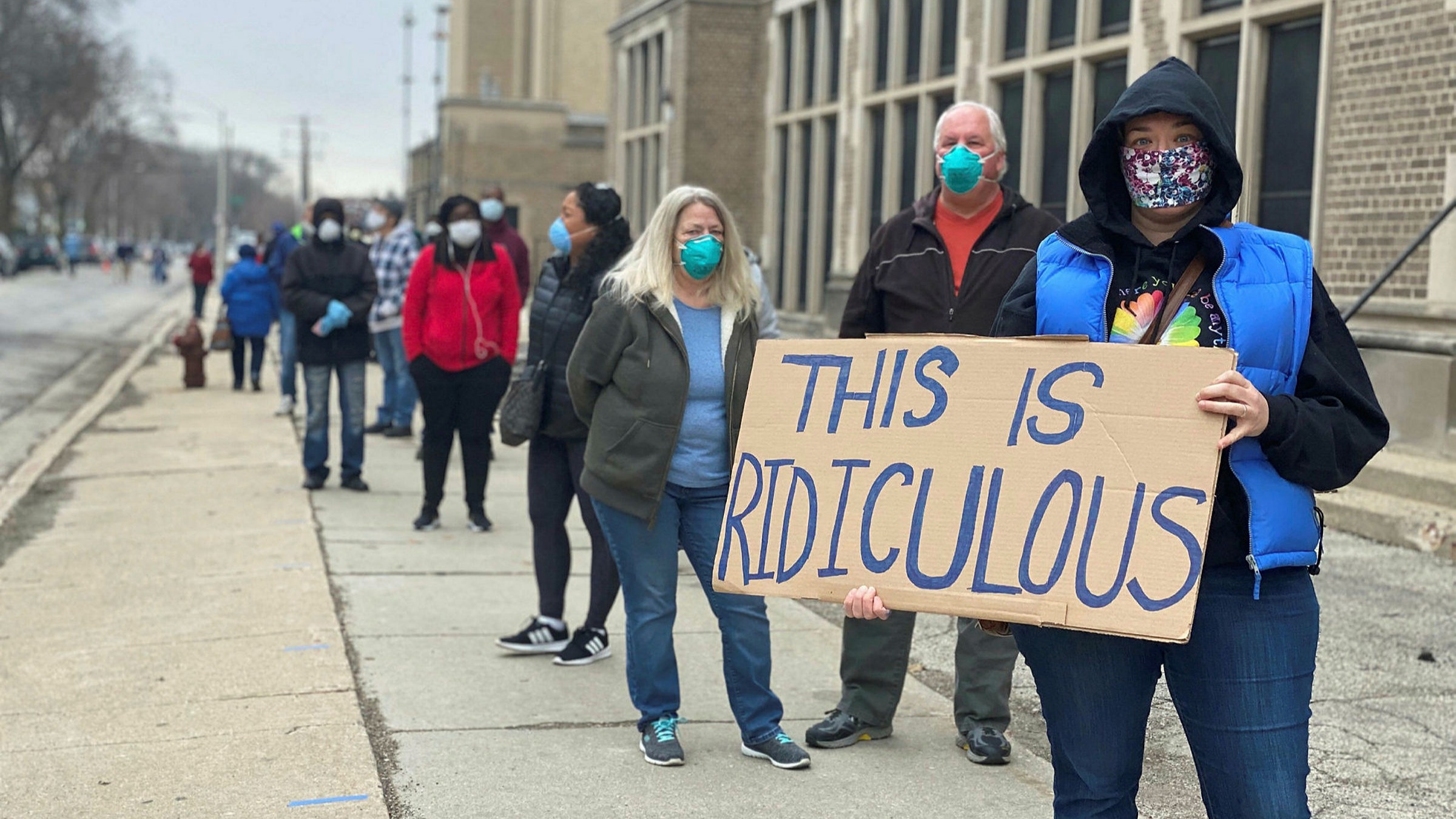Voting by mail a priority due to pandemic precautions
https://arab.news/vnbm9

Fair and free elections are the foundation of any democracy’s politics and discourse. Voter preferences translate into elected officials, who then make policies on behalf of constituents — or so the belief goes. Broken and antiquated election systems now need updating and the practice of voting by mail is no exception. The coronavirus disease (COVID-19) pandemic illuminates how countries conduct elections and also tells us about the voters themselves.
More than 50 countries and territories worldwide have postponed national or subnational elections due to COVID-19. In some countries, the decision to postpone elections involved contentious political interests, with politicians calculating how best to profit from the social and political chaos caused by the virus. Some nations have gone ahead with elections despite the pathogen spread by taking precautions such as social distancing at polling stations.
In the US, the action and concept of voting is about self-identity and being able to express the will to vote in privacy. Voting by mail is an acceptable method to deliver a vote, even where the ritual of going to a voting booth is part of the country’s fabric. No matter what, the voter must still identify themselves to a governmental official, whether that is via mail or at the polling station. A vote by mail is illustrated as a form of “disembodied verification” within the context of the political and cultural voting ritual.
In America, the arrival of the COVID-19 pandemic later than most countries forced changes in the presidential primaries. Last month, more than 12 states postponed their votes.
COVID-19 is reshaping the US voting landscape by creating state-level efforts for mail-in voting. This involves “influencing” all eligible voters to cast mail-in ballots, thus minimizing the number of voters who appear in person at early voting polling places and on election day itself. Five states — Colorado, Hawaii, Oregon, Utah, and Washington — have sent mail-in ballots to all registered voters. Another 28 states and Washington, D.C., offer “no excuse” absentee or mail voting. COVID-19 will also affect those states that plan to allow voters to go to polling stations by mandating social distancing, which will affect the speed at which voters can actually carry out their right to vote.
Voting by mail in the US needs to be increased with greater urgency because of the very high likelihood of pandemic-related protocols still being required to prevent contagion spread, protecting community health, at open polling centers.
This pathogen will most likely re-emerge in the fall during the final weeks of the electoral trail and right up to the Nov. 3, presidential election. Last week, California Governor Gavin Newsom signed an executive order to ensure every registered voter in the state is automatically mailed a ballot for the November presidential election; although this will not entirely replace in-person voting. Importantly, the polling stations are usually manned by people aged well over 60, making them high-risk, and thus there is a key requirement for younger people to take their place. That issue may be problematic and planning for voting stations needs to start immediately.
According to scholars, there is extensive research on allowing, encouraging or even effectively mandating mail-in voting and whether or not this produces a higher turnout. Broadly speaking, the consensus is that voting by mail is politically neutral with respect to who votes. However, there is surprisingly little research on the hundreds of thousands of votes by mail that are rejected because of spoiled ballots — i.e., because of wrong or missing information on the voting document.
COVID-19 is reshaping the US voting landscape by creating state-level efforts for mail-in voting.
Dr. Theodore Karasik
This aspect is why US President Donald Trump is leading the charge against votes by mail in an exaggerated way. Trump has alleged that people cheat on such ballots and it is a “corrupt” practice that runs counter to the requirements necessary to conduct a free and fair election. So the issue of this year’s presidential election outcome could be one of the most contentious in American history; perhaps even more so than the “hanging chad” controversy of 2000-01, when the announcement of the winner was delayed by several weeks.
Overall, the old adage “it’s in the mail” is going to take on a whole new meaning in the US and many other countries in the coming months. State and federal authorities will have to make adjustments to safeguard polling. The US Postal Service will need funding and this might be a sticking point. Local budgets will also need to address problems and find remedies quickly to guarantee the election goes as smoothly as possible, given the toxic American political environment. The international community will be watching how the US election unfolds very closely.
- Dr. Theodore Karasik is a senior adviser to Gulf State Analytics in Washington, D.C. He is a former RAND Corporation Senior Political Scientist who lived in the UAE for 10 years, focusing on security issues. Twitter: @tkarasik









































